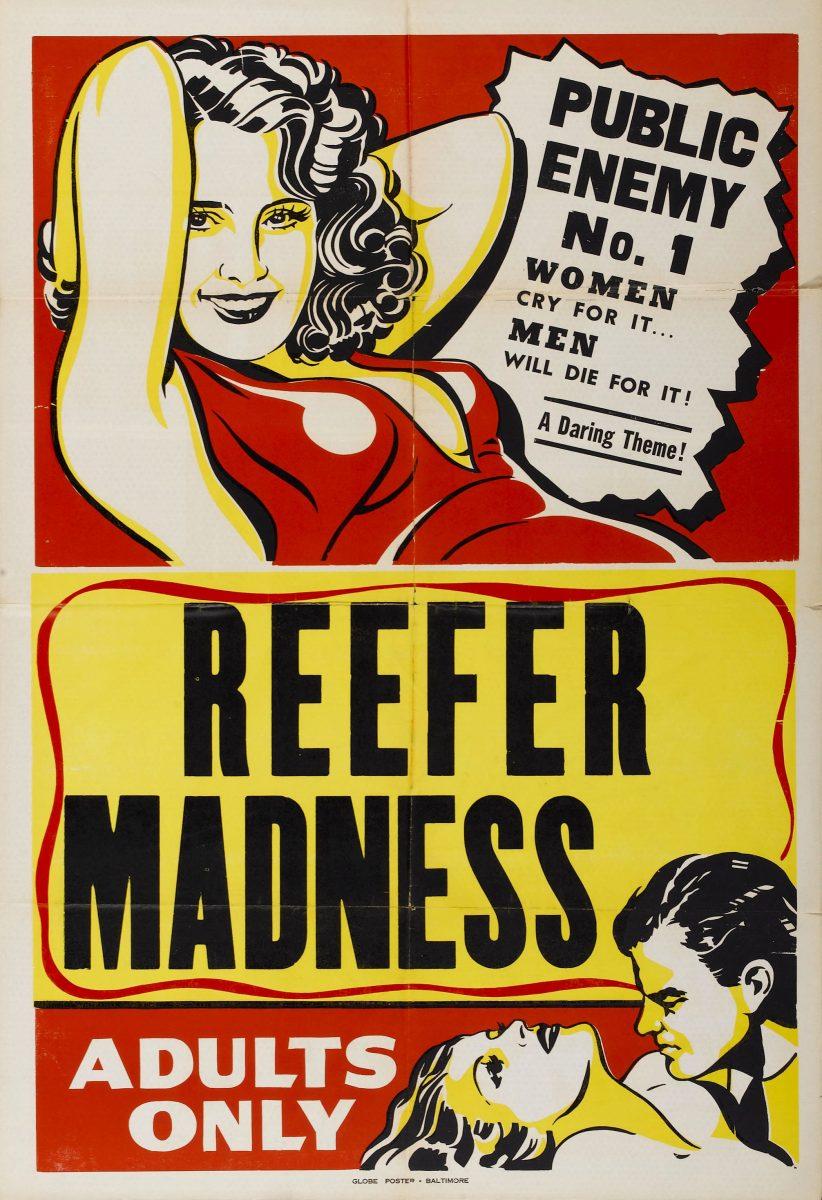The title crawl to the 1936 anti-marijuana exploitation film “Reefer Madness” (alternatively entitled “Doped Youth” and “Tell Your Children”) reads “its first effect is sudden, violent, uncontrollable laughter; then come dangerous hallucinations — space expands — time slows down, almost stands still…” One can only imagine how many teenagers and young adults who were shown this piece of anti-marijuana propaganda read that particular line and thought to themselves “yes please.” At least, that’s what I thought when I read it.
“Reefer Madness” doesn’t care about its characters, nor does it want the audience to think about the story it’s telling too deeply. There is a wealth of societal ills all nicely wrapped into the film’s brisk one hour and eight minute runtime, though none of them involve the consumption of marijuana. It will leave you flabbergasted as you watch these papier-mâché characters make morally incomprehensible decisions to keep order in their community.
The sheer lunacy of the plot is part of what has made this film such an ironic favorite amongst those who partake in some of the activities so deviantly portrayed here. “Reefer Madness” revolves around a group of high schoolers who get involved in cannabis use, leading to an array of (unintentionally) comical yet tragic events. Because the film is a piece of propaganda, the characters really don’t have any control over the events of the story. Marijuana is the protagonist of the film, as well as the antagonist. The characters are simply props within the story of this particularly deadly narcotic, which is, as we are reminded, “more deadly than heroin.” The drug compromises the academic life of young Bill (though he seems to be having a great time), inevitably leading him to possibly commit a crime that will forever ruin his life.
What ensues is a whirlwind of manic laughter, manic piano playing, manic dancing and (of course) murder. There is also promiscuity, of which every character who partakes of cannabis is inevitably guilty. Finally, there is an instance of suicide, which is unsurprisingly a result of too much cannabis use.
The characters, respectable and deviant alike, all smoke cigarettes regularly. When Bill is charged with murder, the group of individuals charged with deciding his fate declare him guilty and worthy of being hung. The moral stance the film takes is clearly one of approval. Fortunately, the tone is so lacking in self-awareness that it makes for the perfect kind of unintentional dark comedy, in which absolute chaos reigns supreme and the laws of logic no longer apply.
As a morality tale about the use of drugs, it is obviously problematic, but nobody would take this film seriously as a parable against marijuana. “Reefer Madness” is 100 percent madness, and it would seem as if only someone who is unbelievably high could possibly create such an impossible masterpiece of bad cinema.
‘Reefer Madness’: Classic hallucinogenic exploitation
April 19, 2020
Photo by Creative Commons
“Reefer Madness” first released in 1936.
0
Donate to The Battalion
$1865
$5000
Contributed
Our Goal
Your donation will support the student journalists of Texas A&M University - College Station. Your contribution will allow us to purchase equipment and cover our annual website hosting costs, in addition to paying freelance staffers for their work, travel costs for coverage and more!
More to Discover
















